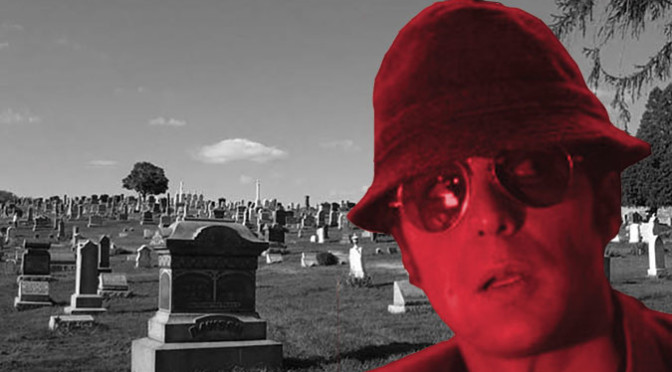I took a sketch workshop with Kevin McDonald from The Kids In The Hall at The Magnet Theater a few years ago. I was even enlisted to drive Kevin from Boerum Hill where he was staying into Manhattan for the two days of the workshop. (My screenplay Driving Mr. McDonald is still in the works.) He didn’t have anything mind-blowing to impart to us despite being in one of the most legendary sketch groups of all time but it was a cool class and sometimes it’s just helpful to listen to an expert talk about his craft.
But he talked about a concept that I had never heard named before. He talked about the “about about.” Obviously every screenplay has its plot, what it’s “about”, but it also has an underlying reason for existing, the concept at its heart, its “about about.” He said that even when you’re writing your movie, you may not know what your about about is. He gave the example of Brain Candy. For those who haven’t seen it, it’s the Kids In The Hall’s movie that is ostensibly about a chemist who discovers a drug that makes you happy by taking you back to your favorite memory. He then has a meteoric and absurd rise to fame. Kevin said that they realized, while making it, that the movie was really about show business. He pointed to the Variety-esque magazine about upcoming drugs. This movie also features a Lorne Michaels stand-in in the form of Mark McKinney’s CEO character (to be put alongside Dr. Evil and Jack Donaghy).
Cameron Crowe said that Jerry Maguire is about loyalty. Paul Thomas Anderson, in his WTF interview, said that Magnolia is about his dad. My friend had a theory that Bring It On was really about the lack of originality in scripts in Hollywood.
I recently re-watched Confessions of a Dangerous Mind. It’s not a bad movie but I found myself not really enjoying it. I watched it piecemeal, turning it off and picking it up again, days later. It seemed like George Clooney wanted to try some interesting techniques. So many of the shots are washed out and fuzzy, which must have some purpose but just managed to annoy me after a while. The protagonist, Chuck Barris (played by Sam Rockwell), is pretty unlikeable and a bit of a buffoon which, from what I can surmise, is pretty accurate. I mean, the creator of The Dating Game and The Gong Show wrote a book that asked us to believe that he was an assassin for the CIA.
When this movie came out in theaters I was going through a “read the book before the movie comes out” phase. It’s actually difficult to maintain but I did it for this movie. The book was a memoir of his time creating television shows while being a hitman for the CIA. The CIA episodes were described with such a relaxed tone that it was hard to tell if he was in on his own joke or if he really believed and expected us to believe, that his CIA tenure actually happened. I had to choke down the book.
But why would George Clooney choose to direct this and why would Charlie Kaufman of all people write the screenplay? At the time this movie was made, Kaufman had just written Being John Malkovich and Adaptation and was considered a screenwriting genius. So, why this movie? Maybe he was attracted to a quirky story, like the rumor about the script about the guy who figured out the pattern on Press Your Luck, won a ton of money, then had it all stolen out of his home where he kept it in cash. But I don’t think that’s it.
The movie is faithful to the book but Kaufman added a couple of things. First, Chuck is told by his handler that he fits “the profile.”
You had a twin sister, stillborn, strangled by your umbilical cord, your first hit. Your mother always wanted a daughter, she blamed you for your sister’s death, so, until your sister Phoebe was born, she raised you as a girl. What else? Your father, the dentist. Not really your father. Your real father was a man named Edmund James Windsor, among other things, he was a serial killer, a fact that your mother didn’t know when she had an affair with him in 1928.
It’s a dark and interesting justification that was not in the book that at least tries to legitimize the CIA choosing someone as random as Barris.
But it’s the second addition that intrigues me. It’s Chuck’s reflection on his own life that shows us the about about. We start on the opening scene. Chuck is standing naked in front of a television watching Ronald Reagan taking the oath of office and Chuck speaks in voice over.
When you’re young, your potential is infinite, you might do anything, really, you might be Einstein, you might be DiMaggio, then you get to an age when what you might be gives way to what you have been. You weren’t Einstein, you weren’t anything. And it’s a bad moment.
And then there’s the end when we see the real life Chuck but we hear Sam Rockwell in voice over once again.
I came up with a new gameshow idea recently. It’s called The Old Game. You’ve got three old guys with loaded guns onstage. They look back at their lives, see who they were, what they accomplished, how close they came to realizing their dreams. The winner is the one who doesn’t blow his brains out. He gets a refrigerator.
So, what’s the about about? It’s about the losing battle to make something of your life. Perhaps it’s a pessimistic take on life or maybe it’s espousing the idea that we should all aim high because even the best of us fall short. Viewing Confessions through this lens, it becomes a brilliant choice to tell this story through the character of a man who created silly game shows while harboring the delusion that he was a CIA assassin. It’s actually a common delusion. You get to cast yourself in your mind as someone who is secretly special, secretly chosen, and deep down don’t we all feel that way about ourselves?
I’ve always been obsessed with age. In my twenties, I would be at a job that I hated, staring out the window, wondering how much time I have left to do something that I really wanted to do. I would look at the ages of people that I respected. How old was that actor when he made his first movie? How old was that novelist when he wrote his first book? If I’m twenty-two now, then… If I’m twenty-eight now, then… If I’m thirty-one now, then…
The only thing that getting older has taught me is that time isn’t going to stop passing. If I don’t start doing something today that I want to do that matters to me, then I’ve failed. Sam Rockwell was four years younger than I am now when he starred in Confessions. George Clooney was only three years older when he directed it. But what does the age comparison get me?
I’m also not Einstein. I’m not DiMaggio. I’m not Fitzgerald, Hemingway, or Faulkner. I’m not Seinfeld. I’m not Murphy. I’m not Louis CK. I’m not Messi. I’m not Richard Price. I’m not Jhumpa Lahiri. I’m not Kobe. I’m not Zuckerberg. I’m not anyone.
But I’m also not done.





Hey Rob, its 7 years since you’ve written this. I’m just rewatching Confessons of a dangerous mind again and was doing a google on Edmund James Windsor and this came up. I’m often in this frame of mind where I’m judging myself against my age 51, and others who have achieved success and did so younger than me. I work alone all day and my mind plays havoc on me and the things I haven’t done yet. So far, I’ve written 2000 songs, wrote a novella, a pilot of said novella and am stuck on the beginnings of 5 books that have not progressed past page 21 et al.. I’m not there yet but I keep at it, I also feel I was put on this earth for a purpose and that in my lifetime I will write a great song, my Time In A Bottle. I started my journey when I was 4 btw after I heard Good Vibrations on a 45 without the middle piece all wanky sounding and convinced myself that from that moment on I would live a life in music. Anyway, I’m still imspired by movies and music and don’t suppose I’ll stop working at this. I have a victory bottle of scotch that I keep in my cubby that I bought 20 years ago, it remains unopened.
cheers.
Joe